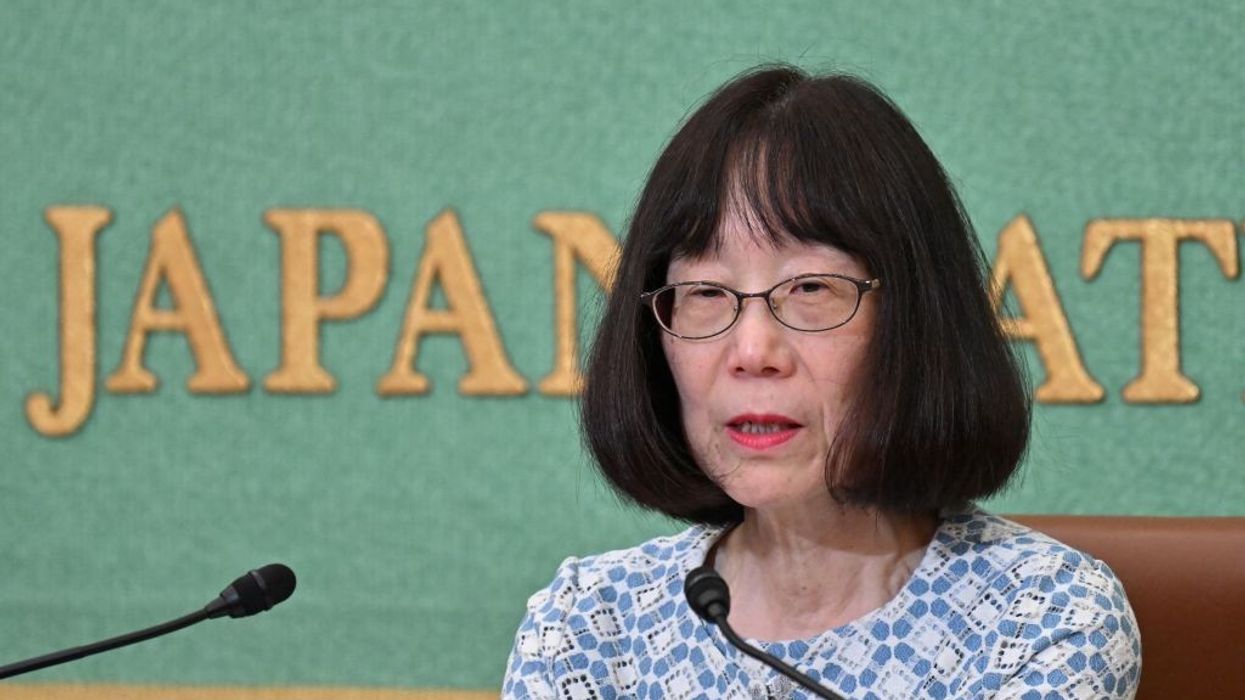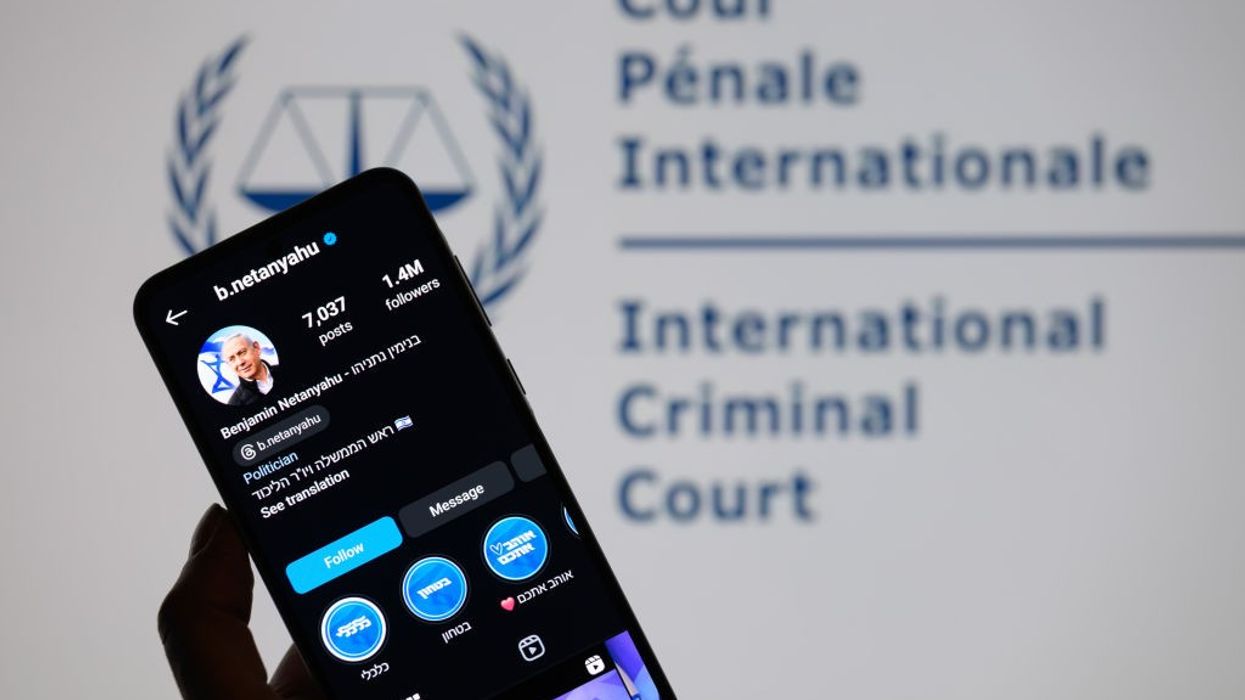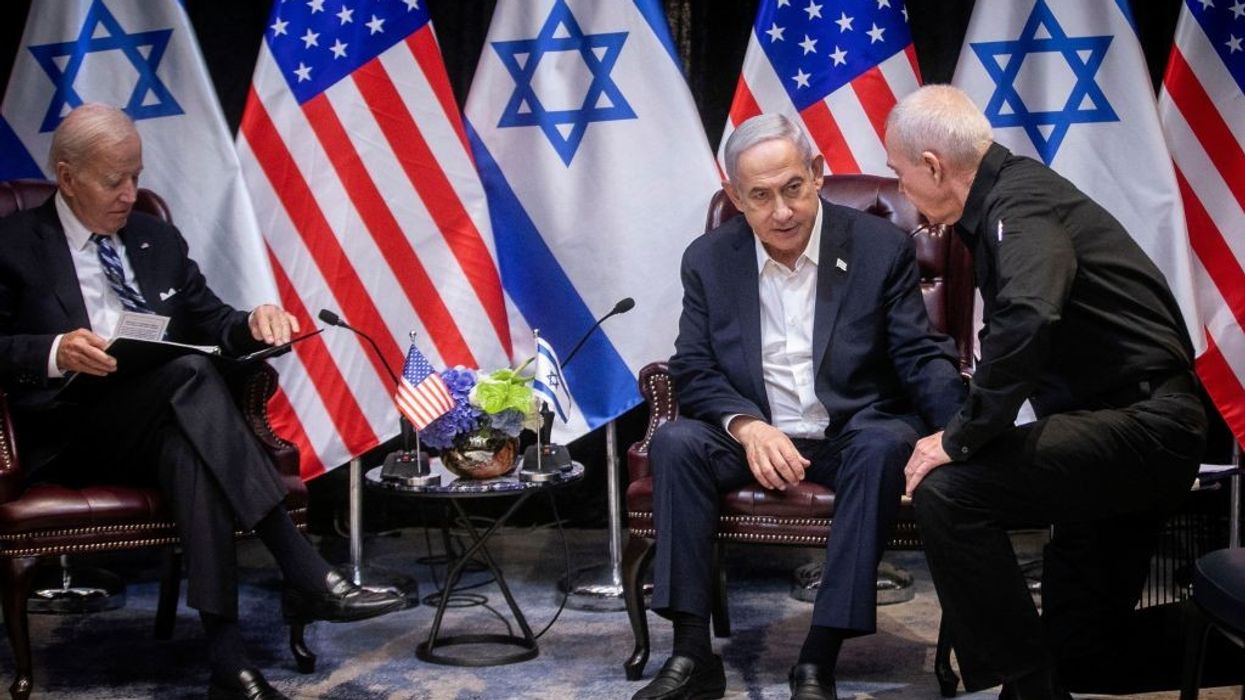ICC President Warns Attacks on Court Threaten 'Future of Humanity'
The judge pointed to Russian arrest warrants for court leadership and U.S. threats of "draconian economic sanctions."
Less than two weeks after the International Criminal Court issued arrest warrants for Israeli and Hamas leaders, the ICC president on Monday warned that the tribunal faces "existential" threats—taking aim at Russia and the United States without naming either.
Judge Tomoko Akane's comments came at the start of the 23rd session of the Assembly of States Parties to the Rome Statute of the International Criminal Court, set to run through Saturday in The Hague, the Netherlands. Established in 2002, the treaty-based ICC prosecutes individuals for genocide, war crimes, crimes against humanity, and the crime of aggression.
"We are at a turning point in history. Regretfully, this is not rhetorical," the ICC president said. "International law and international justice are under threat. So is the future of humanity. The International Criminal Court will continue to carry out its lawful mandate, independently and impartially, without giving in to any outside interference."
"The court has been subjected to attacks seeking to undermine its legitimacy and ability to administer justice and realize international law and fundamental rights; coercive measures, threats, pressure, and acts of sabotage."
Akane shared examples of what the ICC has faced while pursuing justice "as atrocities continue to plague the world," detailing how "the court has been subjected to attacks seeking to undermine its legitimacy and ability to administer justice and realize international law and fundamental rights; coercive measures, threats, pressure, and acts of sabotage."
Rather than naming Russia or the U.S., she called them out as permanent members of the United Nations Security Council.
"Several elected officials are being severely threatened and are subjected to arrest warrants from a permanent member of the U.N. Security Council, merely for having faithfully and diligently carried out their judicial mandate per the statutory framework and international law," she said, referring to Russia, which launched a full-blown invasion of Ukraine in February 2022.
As Human Rights Watch (HRW) summarized Monday: "Arrest warrants issued by Russia against the ICC prosecutor and six of the court's current and former judges in retaliation to the court's March 2023 warrant against Russian President Vladimir Putin, remain pending, and a law criminalizing cooperation with the ICC remains in force in the country. In September 2023, the court was the target of a serious cyberattack."
In addition to Putin, the ICC last year issued a warrant for Russian Commissioner for Children's Rights Maria Lvova-Belova for allegedly abducting Ukrainian children and transporting them to Russia. At the time, neither Russia nor Ukraine was a party to the Rome Statute, but as Akane noted, Ukraine has since ratified the treaty that established the court and will be a state party beginning next year.
Highlighting U.S. attacks on the ICC, Akane said that "the court is being threatened with draconian economic sanctions from institutions of another permanent member of the Security Council as if it was a terrorist organization. These measures would rapidly undermine the court's operations in all situations and cases and jeopardize its very existence."
The ICC issued warrants for Israeli Prime Minister Benjamin Netanyahu, former Israeli Defense Minister Yoav Gallant, and Hamas leader Mohammed Diab Ibrahim Al-Masri last month despite pressure from the United States. Neither the U.S. nor Israel is a party to the ICC, but Palestine is.
As Palestine Chronicle editor Ramzy Baroud noted in a Monday opinion piece for Common Dreams, the November decision was significant in part because "historically, the vast majority of arrest warrants, and actual detention of accused war criminals seemed to target the Global South, and Africa, in particular."
The outgoing Biden administration and U.S. President-elect Donald Trump's pick for national security adviser have criticized the warrants for the leaders from Israel, which also faces a genocide case at the International Court of Justice over its assault on the people of Gaza.
Responding to the warrants on Fox News last month, U.S. Sen. Lindsey Graham (R-S.C.)—a key ally of Trump in the upper chamber that will soon be controlled by Republicans—said: "So to any ally, Canada, Britain, Germany, France, if you try to help the ICC, we're gonna sanction you... We should crush your economy, because we're next."
While Canadian Prime Minister Justin Trudeau said last week that "we will abide by all the regulations and rulings of the international court" as a party to the Rome Statute, France has flip-flopped on warrant enforcement. Just a day after French Prime Minister Michel Barnier told Parliament that the government would fulfill its obligations, the Foreign Ministry announced it would not detain Netanyahu and Gallant, claiming they have "immunities" because Israel is not a party to the treaty.
The Associated Press explained Monday that "Graham's threat isn't seen as just empty words," considering that as president, Trump "sanctioned the court's previous prosecutor, Fatou Bensouda, with a travel ban and asset freeze for investigating American troops and intelligence officials in Afghanistan."
Graham isn't alone in making threats. U.S. Sen. Tom Cotton (R-Ark.) targeted the court's current prosecutor in response to the warrants, writing on social media: "The ICC is a kangaroo court and Karim Khan is a deranged fanatic. Woe to him and anyone who tries to enforce these outlaw warrants. Let me give them all a friendly reminder: The American law on the ICC is known as the Hague Invasion Act for a reason. Think about it."
Officially titled the American Service Members' Protection Act, the 2002 law enables the president to use "all means necessary and appropriate to bring about the release of any U.S. or allied personnel being detained or imprisoned by, on behalf of, or at the request of the International Criminal Court."
Akane said Monday that "we firmly reject any attempt to influence the independence and the impartiality of the court. We resolutely dismiss efforts to politicize our function. We have and always will comply only with the law, under all circumstances."
"There isn't such a thing as selective sanctions or coercive measures. If the court collapses, this will inevitably imply the collapse of all situations and cases," she stressed. "The fall of the court would imply the fall of the rule of law in the international community and a final defeat of the fight against impunity."
Still, the judge concluded that "the court can continue to provide what for humanity is the most essential sentiment: hope," a sentiment echoed by Khan, who spoke after her at the opening of the conference.
The prosecutor said that "history will judge whether or not the promise of the Rome Statute is vindicated in practice in the maelstrom that we see around us, not only the storm we face but winds that are perhaps to come. But despite that, really the focus of my remarks today is that we don't have the luxury, nor do we need to give in to despondency and despair."
As the conference got underway, Human Rights Watch released a 24-page report with recommendations to ensure the court has everything it needs to advance cases and called on state parties to support the ICC in the face of global attacks.
"ICC warrants, whether against Vladimir Putin or Benjamin Netanyahu, send a critical message that no one is above the law," said Liz Evenson, HRW's international justice director. "ICC member countries should make a commitment during their annual meeting to take all necessary steps to ensure that the ICC's crucial work for justice can continue without obstruction."


